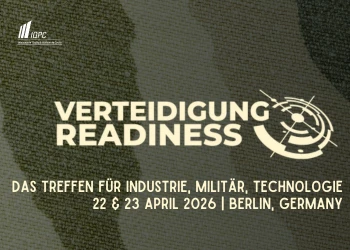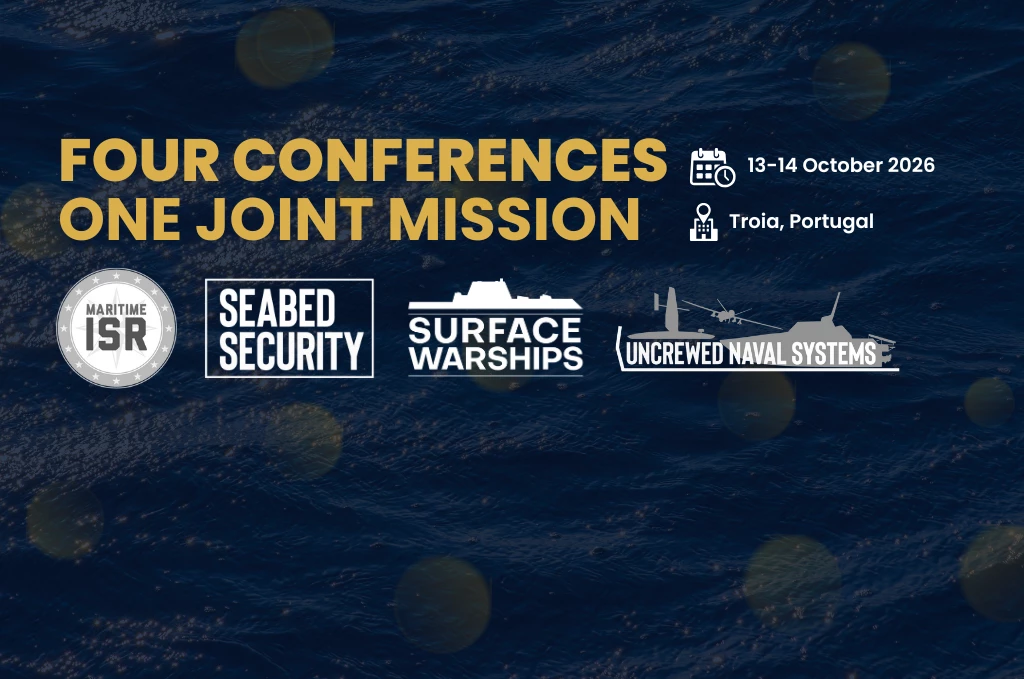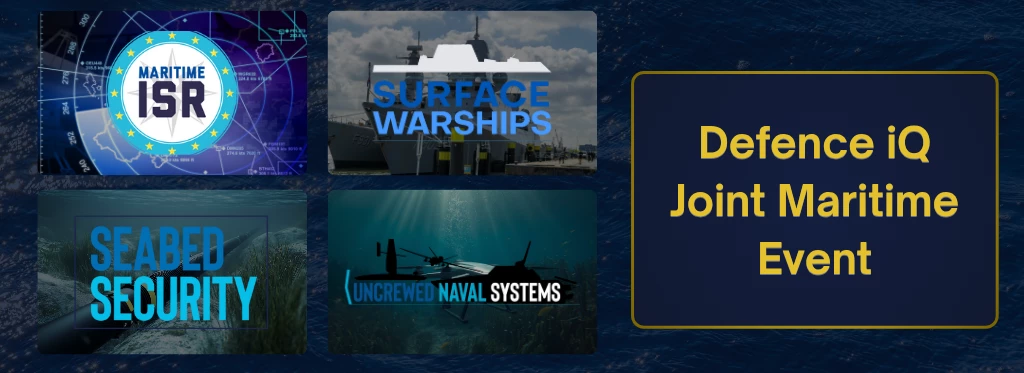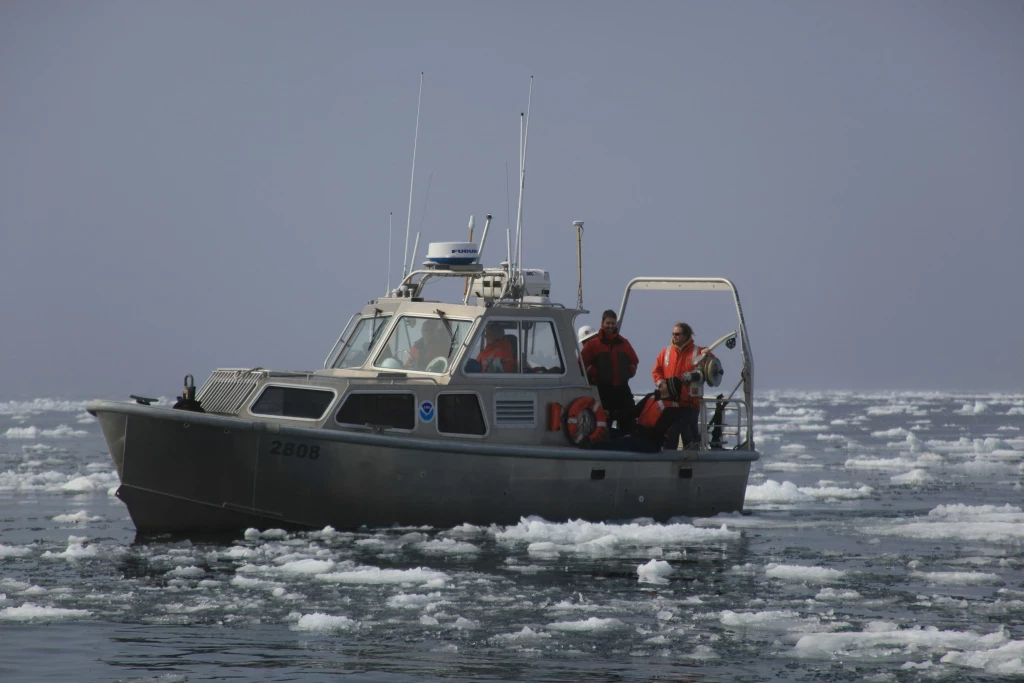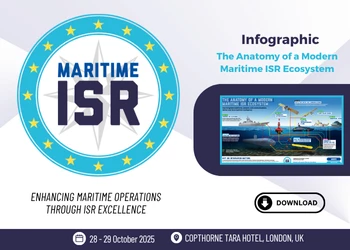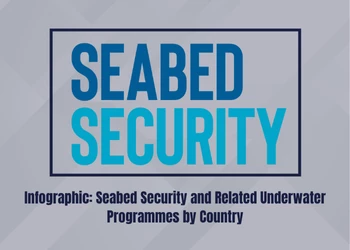Cooperative security to counter cooperative criminals
Add bookmarkThis article appears as part of Defence IQ's African Security Analysis report, which is now available to download. Dr. Ralby will be briefing at the AFSEC 17 Summit, 30-31 May, Morocco.
In February 2016, West and Central Africa experienced, for the first time, the potential power of the cooperative inter-regional maritime security architecture initiated by the Yaoundé Code of Conduct in June 2013.
The case of the M/T MAXIMUS provides an encouraging success story in a part of the world that does not often experience “good news.” The navies of a number of regional states worked together to track and interdict a tanker that had been hijacked sixty miles off the coast of Cote d’Ivoire. But while that case had a happy ending in which the pirates were either killed or captured, the hostages were freed, and the vessel was returned to its owner, it should be seen as an initial indication of positive momentum, rather than cause to declare victory.
Maritime criminals in Africa are becoming more cooperative and consequently becoming more difficult to counter. Unencumbered by borders or national bureaucracy, criminals are able to work seamlessly across regions and exploit the inconsistencies in maritime security capacity and capability. As African maritime threats continue to evolve, other regions around the continent should draw on the Gulf of Guinea’s lessons in cooperative maritime security and seek to make maritime law enforcement at least as interconnected as the maritime crime it seeks to disrupt.
Cooperative Criminals
As state law enforcement agencies are generally consumed with ensuring that the national laws are followed, it is often difficult to identify when activity in one state is actually part of a much bigger transnational criminal operation. This complexity is particularly true in the maritime domain. In states with limited maritime law enforcement capacity and capability, identifying – not to mention interdicting – sophisticated criminal operations is frequently too much to ask. Addressing relatively straightforward maritime safety and security responsibilities is already overly burdensome to the fledgling navies, coast guards and marine police agencies. Increasingly, however, evidence suggests that criminal operations are cooperating between themselves in order to exploit these inadequacies across entire regions, particularly as some of the states begin to improve the effectiveness of their domestic law enforcement abilities.
SEE ALSO: African Security Analysis Report
While most maritime security efforts have focused on piracy, to understand the challenge posed by cooperative criminals, it is perhaps helpful to look more directly at what has largely been the focus of the West African variant of piracy: oil theft. Oil is a major economic driver for the Gulf of Guinea. Nigeria and Angola have both in recent years held the title as the largest producer of oil in Africa, and other states are reaping or have reaped tremendous financial benefit from their onshore and offshore reserves alike. But the region is perhaps as famous for oil theft as it is for oil production.
A 2013 report by Chatham House on Nigeria’s Criminal Crude: International Options to Combat the Export of Stolen Oil detailed just how extensive the problem of crude oil theft was at the time. As that study found, however, the criminal networks in the Gulf of Guinea were more “cellular than hierarchical,” and exhibited a remarkable degree of cooperation, both on land and at sea.
In other words, the illicit supply chain of crude oil theft involved lots of different entities working together, rather than one major criminal network controlling the whole market. This building block approach to criminality is particularly difficult to interdict, as one successful law enforcement operation is unlikely to take down the whole operation, but rather only a piece of it.
As a more recent Atlantic Council report on Downstream Oil Theft: Global Modalities, Trends, and Remedies reveals, the illicit dynamics of refined oil are at least as complex as those of crude oil. Not only is fuel theft in Africa a major criminal enterprise worth billions of dollars, it is also a major funding source for more sinister illicit activities including terrorism, trafficking and militancy.
While the report focuses on ten different case studies, it is perhaps the connections between several of them that reveals the most telling insights for the challenges facing African law enforcement agencies. As the Nigerian, Ghanaian and Moroccan case studies show, until recently, crude oil that was stolen in Nigeria was laundered through an offshore facility in Ghana and sold to refineries in Morocco and elsewhere. It was then refined and sold into the market as legitimate product. At the same time, 30% of the refined oil products that are imported into Nigeria are smuggled out, often by boat, meaning that 80% of all fuel in Benin has been smuggled from Nigeria.
In other words, the regional states have developed an economic interdependence centered on the illicit marketplace. Interfering with the illicit economy – not just of oil, but also fish, narcotics, weapons and other illegal activities – will therefore have a direct impact on the national economy, as well.
While oil theft in West and Central Africa provides a glimpse into an under-examined criminal activity that indicates the extent of criminal cooperation, the same dynamics are evident in other criminal activities and other regions. Additionally, many of the same criminal elements that participate in the illicit hydrocarbons trade are tied to other criminal endeavors, as well. Though the North African Coast has received tremendous attention for the movement of refugees and migrants across the Mediterranean and into Europe, the focus on the humanitarian situation has provided cover for increased trafficking of illicit goods.
[inlinead]
Distinct from the West African fuel dynamics, illegal oil coming out of Libya has been found to be divided into smaller tankers in the Mediterranean via ship-to-ship transfers and then transferred a second time to European vessels near to European territorial waters. It then enters the EU as “legitimate” fuel.
The sophistication of these operations again indicates a complex cooperative network across a wide geographic area. If states are only focused on what is happening in their own territorial waters, they will remain blind to these sorts of transnational criminal dynamics.
In East Africa, the focus has been piracy for over a decade, but there has been a myth that has been perpetuated for some time now. The false narrative is that there had been no successful pirate attack between May 2012 until March 2017. While it may be the case that there had been no successful reported attack on a commercial vessel engaged in legitimate international commerce, there have been successful attacks on vessels engaged in trafficking and illegal fishing.
This criminal-on-criminal crime has created a law enforcement challenge, as protecting illicit traffickers and illegal fishermen from piracy is a priority of the states who have devoted considerable resources to the international forces present in the Northwest Indian Ocean. But at the same time, it is not in the best interests of the states to allow piracy of any form to continue, as it may become redirected toward international commerce at any point, as seems to be the case at present.
While this form of dual criminality is not cooperative in the same sense as the building block model in West Africa or the layered model of the Mediterranean, it is another way in which criminality stays outside the scope of state-centered law enforcement efforts.
Existing Efforts at and Models of Maritime Cooperation
The last five years have seen a rapid increase in maritime security initiatives around the entire continent of Africa. Nowhere, however, have those initiatives been more focused on sustainable mechanisms of cooperation than in West and Central Africa. The June 2013 Code of Conduct Concerning the Repression of Piracy, Armed Robbery Against Ships, and Illicit Maritime Activity in West and Central Africa, often referred to as either the Gulf of Guinea Code of Conduct or the Yaoundé Code of Conduct provides the mandate for cooperation to address maritime security collectively between the twenty-five signatory states.
At the same, time a proliferation of strategies at the regional and national level, as well as the overarching Africa Integrated Maritime Strategy 2050 all provide a vision of increased cooperation – intra-nationally, intra-regionally and inter-regionally – maritime security in West and Central Africa.
In addition, several of the maritime zones – groups of states that are intended to be cooperative building blocks for maritime security – have taken positive steps toward realizing their potential. Maritime Zone D, comprised of Cameroon, Equatorial Guinea, Gabon and São Tomé and Príncipe has led that trajectory by actually engaging in extensive and increasing operational cooperation on the water since the signing of a Technical Accord for sharing law enforcement capacity and resources in 2009.
Currently, Zone D is working to finalize a binding legal agreement to, not only formalize that operational collaboration, but to effectively pre-resolve the sorts of legal disputes likely to arise out of it. Controversial subjects like hot pursuit, forfeiture of assets and the specifics of ship rider agreements are all addressed such that they do not become items of contention while underway. This approach of pre-conflict resolution provides a model, not only for the other maritime zones, for other parts of the world, as it is a truly forward-thinking and functional approach to maritime security.
On the one hand, it is important to recognize the success of cooperative initiatives like the Yaoundé Code of Conduct and the operational collaboration of Maritime Zone D, but on the other hand, these young initiatives only cover part of the continent and still require significant external assistance. Furthermore, even in West and Central Africa there is no room for complacency, as the regions are almost certain to face further tests of their nascent resilience in the coming years. In order to have any chance of true success, therefore, African states must confront a variety of different issues simultaneously, and focus on addressing not just the issues that are of a clear national nature, but those that contribute to regional insecurity at the same time.
While piracy draws international attention, curtailing endemic systems of both upstream and downstream oil theft would, for example, do more to change the economic situation across the region and offer a foothold of stability for developing greater security capacity. Similarly, illegal, unreported and unregulated (IUU) fishing has a more direct impact on millions of lives than the hijacking of a vessel, yet is often a lesser priority compared to the sexier crime of piracy. Thus, milestones of success should be celebrated, cooperation should be applauded and a lot more work should be done to identify and expand on the activities that are most likely to improve the maritime security environment in the short, medium and long term.
The Need for Cooperative in Law Enforcement
To have any hope of overcoming the challenges posed by criminal cooperation, law enforcement agencies must themselves cooperate on several fronts. First, they must cooperate between law enforcement on the water and law enforcement on land. The littoral divide provides an ample opportunity to engage in criminal behavior outside the visibility of many law enforcement agencies. Furthermore if interdiction on the water is not paired with arrest and prosecution on land, it is incredibly difficult to effectively deter maritime crime.
Second, they must cooperate with other government agencies. Whether it is purely maritime agencies like the port authority or fisheries department, or agencies whose responsibilities intersect with the maritime space like customs and border patrol, finance and tax, or the drug enforcement body, a whole-of-government approach to maritime crime is a fundamental element of successfully confronting it. Such processes reduce opportunities for corruption, increase efficiency and effectiveness and provide more of the “full picture” of illicit activity within the state, as crime on the water often moves onto land, and vice-versa.
Third, law enforcement bodies must cooperate, either directly or perhaps through a whole-of-government entity with neighboring and other regional states. Only through this bilateral, regional and international cooperation is it even possible to have the full picture of the criminal threats the various states face. This cooperation, while perhaps aided by international partners – both states and organizations – must be locally driven and locally focused. The political and operational will to cooperate is a prerequisite for overcoming the tendency to be exclusively inward-focused.
Conclusion
Both maritime security and insecurity in Africa are increasingly centered on cooperation. That cooperation is most mature among the criminal elements which seek to exploit inadequacies in law enforcement across entire regions. To effectively respond, states must develop superior cooperation, both internally and externally, to reduce the opportunities for criminals to obtain the upper hand. Ultimately, African maritime security must become an undertaking that envelops the entire continent and remains, at all times, at least as cooperative as the illicit actors the African states and regions face.
Dr Ian Ralby is CEO of I.R. Consilium, LLC, and a recognized expert in international and maritime law with experience working in the US, Europe, Africa, the Caribbean, South and Southeast Asia, the Middle East and the Balkans. His work focuses on the intersection of law and security and tends to be for sovereign governments or international organizations. Dr Ralby is considered a leading authority on the regulation, governance and oversight of private security companies, having been involved in national and international efforts to develop accountability and standards for the private security industry. In addition, he is widely regarded as an expert on developing maritime security, as well as devising effective approaches to addressing both traditional and emerging maritime crimes. He has led several projects to help states develop national maritime domain strategies and has worked extensively on developing legally-grounded mechanisms for maritime security cooperation between states. Dr Ralby is a non-resident Senior Fellow at the Atlantic Council, and a ‘Key Opinion Former’ on Maritime Security at NATO. He previously served as Adjunct Professor of Maritime Law and Security at the US Department of Defense’s Africa Center for Strategic Studies. He speaks and publishes widely on matters of international relations, law and security. He earned a BA in Modern Languages and Linguistics and an M.A. in Intercultural Communication at the University of Maryland, Baltimore County; a JD at the College of William and Mary; and an MPhil in International Relations and a PhD in Politics and International Studies at St. John’s College of the University of Cambridge.




